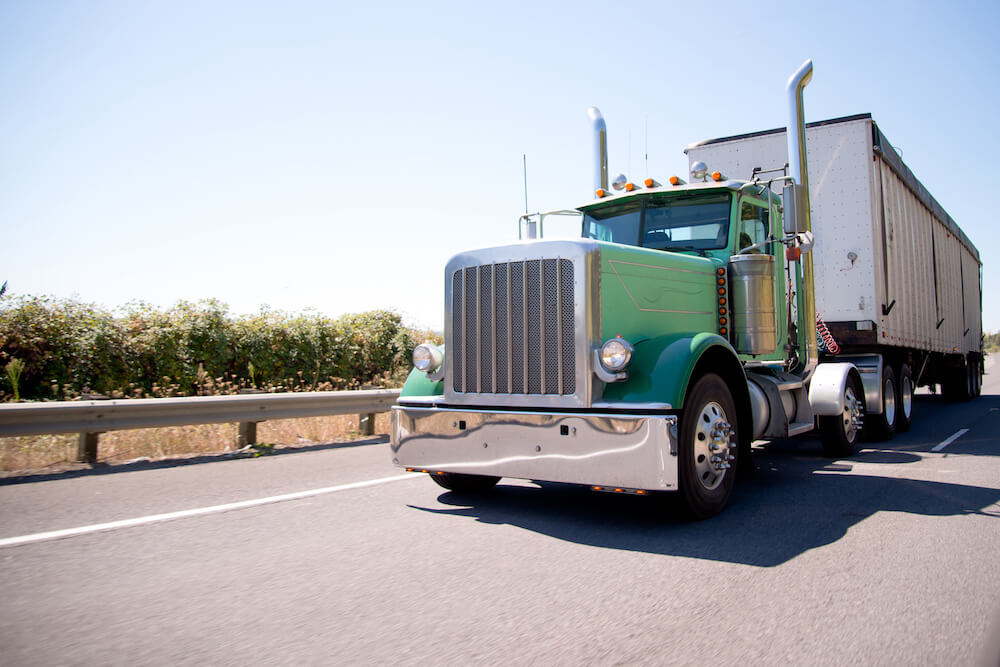The term private motor carrier refers to a commercial trucking company that transports the cargo it produces rather than outsourcing the job to another company or independent owner-operator. Businesses that operate as a private motor carrier typically produce, sell, or use the cargo it produces and transports. The main thing that distinguishes a private motor carrier from other types of motor carriers is that they do not deliver anyone else’s goods, and they do not make deliveries for financial compensation.
The Federal Motor Carrier Safety Administration (FMCSA) requires private motor carriers to have a United States Department of Transportation Number (USDOT). However, private motor carriers do not need to have an MC number, which also stands for operating authority.
What is a US DOT Number and what are the other criteria for needing it?
The US DOT number provided by the FMCSA gives the organization the ability to track the safety record of a trucking company. The number also makes it possible to quickly obtain information about a specific company during an audit, inspection, crash report, or compliance investigation.
Whether a company chooses to operate as a private motor carrier or not, several other factors help to determine if it will need a USDOT number. These include:
- Vehicles designed to transport more than 15 people for which the driver does not receive compensation
- Vehicles designed to transport more than eight people for which the driver does receive compensation from passengers
- Vehicles with combined weight ratings greater than 10,001 pounds
- Vehicles carrying hazardous material that requires a permit for intrastate travel
- Vehicles involved in interstate commerce
In addition to these criteria, 36 states and Puerto Rico require intrastate commercial truck drivers to obtain a USDOT number. If you are required to get a DOT number, you will need to obtain your USDOT number from the Department of Motor Vehicles (DMV) in your state.
What types of insurance coverage do private motor carriers need?
Auto liability.
Per regulations from the FMCSA, all commercial truckers must carry liability insurance. This type of policy covers damages that you cause to other drivers on the road and their personal property. The two primary categories of liability insurance include bodily injury liability and property damage liability insurance. Remember that liability insurance doesn’t cover any damages you suffer whether you caused them yourself or another driver caused them.
Physical damage.
Physical damage insurance is also a good thing to have as a private motor carrier because it can help you get your truck back on the road ASAP if it’s damaged. It generally consists of collision coverage and comprehensive coverage.
- After any co-pays or deductibles, collision coverage can help pay to repair damages to your truck that occur due to an accident.
- Comprehensive coverage can help cover damages resulting from losses that aren’t wrecks – for example, fire, theft, vandalism, falling objects, or animal strikes. A large tree branch falling and causing damage to your commercial vehicle is one common example.
Depending on the insurance carrier, an agent may offer you separate coverage for fire and theft, comprehensive insurance, or collision insurance.
We can help you get big rig insurance quotes.
It can be overwhelming to shop for commercial trucking insurance, especially when you need more than one type. We can help you get big rig insurance quotes from several insurance companies. This gives you the chance to compare information to determine which policies best meet your needs. Get in touch by filling out our online form, giving us a call, or messaging us on LiveChat.
Source:
https://ask.fmcsa.dot.gov/app/answers/detail/a_id/247
https://www.fmcsa.dot.gov/registration/do-i-need-usdot-number



